World Breastfeeding Week 2012 Press Conference Survey reveals over 80% of mothers breastfeed while conditions for exclusive breastfeeding have yet to be improved
2012-07-28
Hong Kong, 28 July 2012 – The Department of Health, Hospital Authority and UNICEF Baby Friendly Hospital Initiative Hong Kong Association (BFHIHKA) joined hands to organise the annual press conference. At the press conference, results of the annual survey of BFHIHKA showed that over 80% of mothers initiated breastfeeding on discharged from hospitals. The rate has reached the highest ever in 20 years.
| According to the survey results, breastfeeding rate on discharge from hospitals in year 2011 was 83.3%, 4.1% higher than the previous year. “Number of births in 2011 increased by 7.5% compared to 2010. Although ensuring the large number of non-local mothers receiving antenatal preparation for breastfeeding was a challenge, the breastfeeding rate continued to rise steadily. This reflects that mothers’ intention to breastfeed is high.” Besides, all 18 hospitals with maternity units stopped receiving free supplies of infant formula this year, thus avoiding conflicts of interests. This marked a major step towards achieving Baby Friendly Hospital status in Hong Kong. However, conditions that facilitate exclusive breastfeeding in Hong Kong have yet to be improved. For instance, 8 out of 10 private hospitals with maternity units do not room-in mothers and babies day and night making exclusive breastfeeding difficult. Dr. Ip emphasised, “The Ten steps to successful breastfeeding, such as rooming-in, training of medical and nursing staff, promotion of mother support group, etc., complement each other to put mothers on a firm ground to sustain exclusive breastfeeding after discharge from hospitals.” |
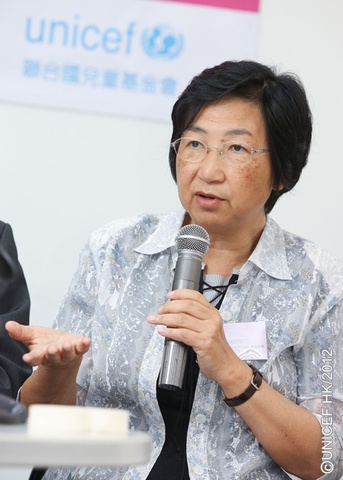 |
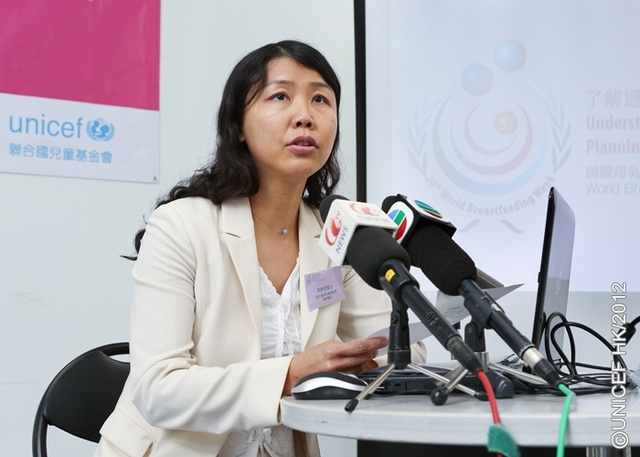 |
Dr Barbara Fung, Senior Medical Officer, Family Health Service said, “Department of Health has launched a series of health educational resources for health care professionals and the public, including a multi-media e-learning kit for medical practitioners, a flip-chart on breastfeeding and a breastfeeding information booklet to facilitate health professionals in individual counselling with expectant and lactating mothers. The Department of Health recognises that the implementation of the ‘International Code of Marketing of Breastmilk Substitutes’ is an important public health measure in protecting breastfeeding and ensuring proper use of breastmilk substitutes through appropriate marketing practices. |
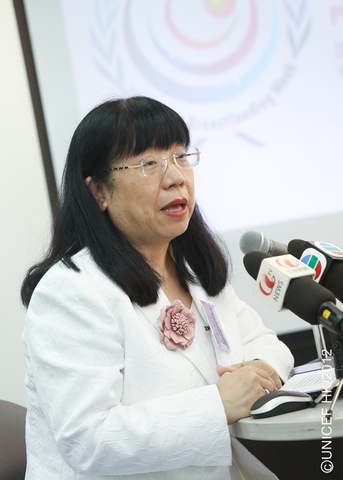 |
Ms Sylvia Fung, Chief Manager (Nursing)/Chief Nurse Executive, Hospital Authority and Co-Chairman, Hospital Authority Steering Committee on Breastfeeding said that promoting, supporting and protecting breastfeeding is one of the major objectives of the Hospital Authority. The Authority has stopped accepting free infant milk formulae from suppliers and continues to monitor the vendors’ compliance to contractual requirement. The Authority also enhances mother-friendly practices, and training for nursing staff, care-related and clerical support workers in all birthing hospitals. Nonetheless, through the successful telephone follow-up of 2,547 breastfeeding mothers upon hospital discharge, 1,860 were still breastfeeding at 1 month postpartum, and only 616 of them were breastfeeding exclusively. This reveals that breastfeeding support is needed not only within the hospitals, but also in the community in order to improve the sustainability of breastfeeding. |
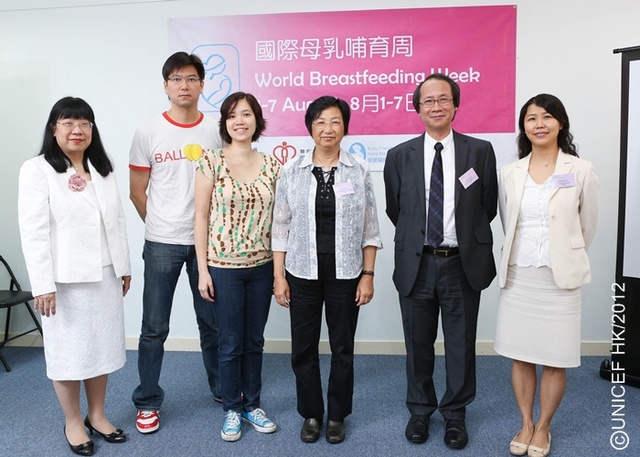 |
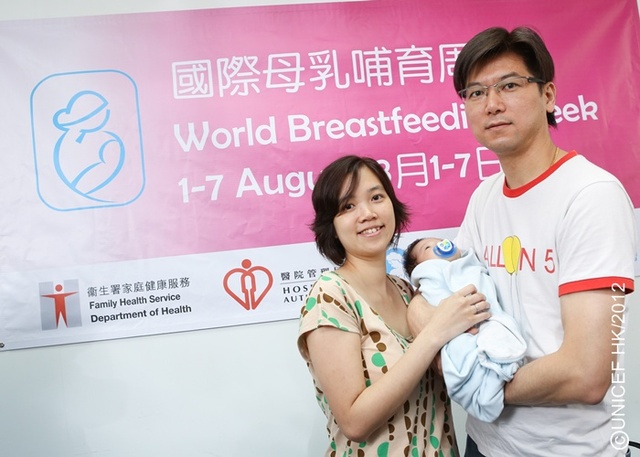 |









